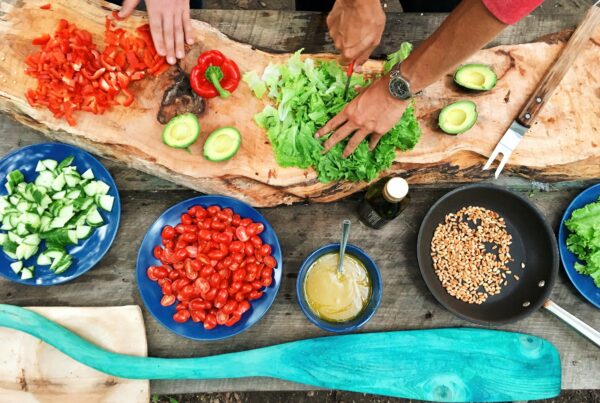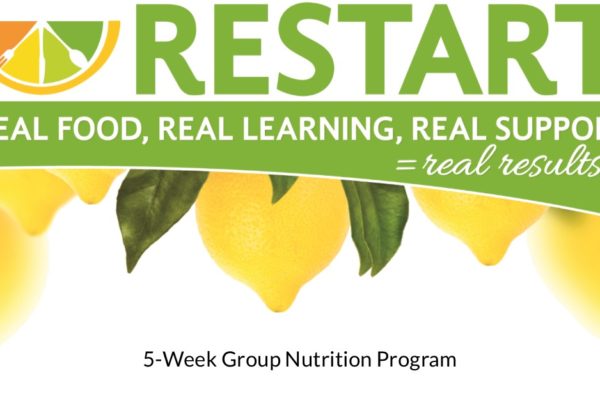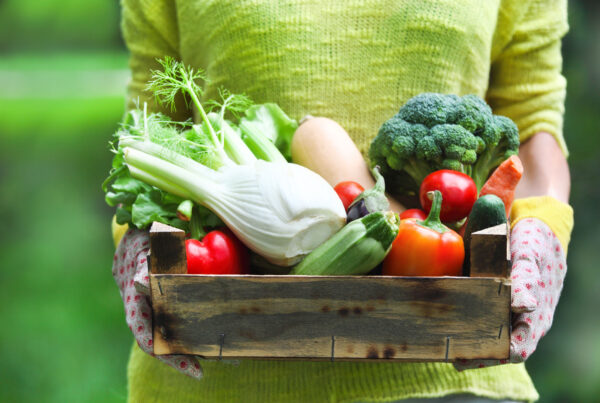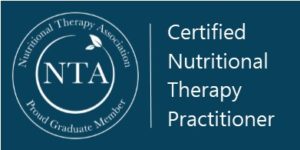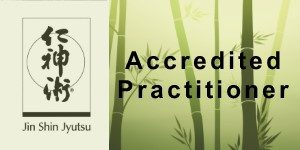This is a guest post by Anji Sandage, Salt Lake County Chapter Leader for the Weston A. Price Foundation. Weston A. Price Foundation is a nonprofit, tax-exempt nutrition education foundation. Read our mission statement. . . Become a member and receive our lively and informative quarterly journal. Click here for a message from Sally Fallon Morell. Read our Dietary Guidelines here.
 In addition to being a chapter leader for the WAPF, Anji is blessed to be the mother of four children, the youngest of who would not be here if it had not been for the Weston A. Price Foundation. After the birth of her second child, Anji experienced several years of infertility with what she thought was early menopause. She was only 30 years old at the time! Anji credits these 10 basic changes in diet for her ability to bring two more beautiful children into the world, and works hard to spread the word to others who are experiencing health issues of their own. I hope you enjoy this guest post on 10 Steps to a Healthier You.
In addition to being a chapter leader for the WAPF, Anji is blessed to be the mother of four children, the youngest of who would not be here if it had not been for the Weston A. Price Foundation. After the birth of her second child, Anji experienced several years of infertility with what she thought was early menopause. She was only 30 years old at the time! Anji credits these 10 basic changes in diet for her ability to bring two more beautiful children into the world, and works hard to spread the word to others who are experiencing health issues of their own. I hope you enjoy this guest post on 10 Steps to a Healthier You.
If you are struggling to make changes for yourself and your family to improve your health and quality of life, here are 10 basic steps that can be as simple as changing your grocery list:
 1. Fruits and Vegetables – eliminate canned, and use fermented, fresh, or frozen.
1. Fruits and Vegetables – eliminate canned, and use fermented, fresh, or frozen.
Fresh vegetables have the highest nutrient content out of any preservation techniques other than lacto-fermentation because heat from cooking, pressure from canning, and other food preparation methods destroys nutrients in the food. We should aim for the highest amount of lacto-fermented and fresh fruits and vegetables possible. The next best thing to fresh is frozen with minimal processing. If you currently use canned fruits and vegetables, I suggest ditching them and getting a freezer, and learning how to make lacto-fermented vegetables such as sauerkraut or kimchee, as well as eating as many fresh fruits and vegetables as you possibly can.
 2. Salt – get rid of iodized table salt and switch to unrefined sea salt.
2. Salt – get rid of iodized table salt and switch to unrefined sea salt.
Iodized table salt is highly processed and causes swelling and edema, especially during pregnancy. Since I have begun using unrefined salt, I began to notice the harsh salty flavor of the iodized table salt, and it has brought new meaning to the passage of scripture which states, “You are the salt of the earth: but if the salt has lost its savor, how shall it be salted? It is thereafter good for nothing, but to be cast out, and to be trodden under foot of men.” I think of this highly processed salt as “salt which as lost its savor.” Not only is it extremely bad for your body, it tastes bad too. Good salt is not bleached or refined, and will not be pure white.
 3. Sweeteners – eliminate sugar – switch to raw honey and other unrefined sweeteners.
3. Sweeteners – eliminate sugar – switch to raw honey and other unrefined sweeteners.
Pure Natural Sweeteners are the only thing you should need when it comes to adding a little sweetness to life. Raw Honey, raw dehydrated cane juice, maple syrup, stevia, and natural unprocessed coconut sugar are a few examples of good quality natural sweeteners. If we were not meant to have sweetness in our diets, there would not be honey and other natural sweeteners in the abundance that they are, however processed sugar, high fructose corn syrup, and other highly processed sugars have proven to have disastrous effects on our health! Once you begin eliminating sugar, you will find that a small amount goes a lot farther.
 4. Grains, Seeds, Nuts, and Legumes – limit the amount of grains that you eat, and when you do eat them, make sure they are whole soaked grains. Grains, seeds, nuts, and legumes need to be prepared properly to reduce phytic acid content if you are going to eat them.
4. Grains, Seeds, Nuts, and Legumes – limit the amount of grains that you eat, and when you do eat them, make sure they are whole soaked grains. Grains, seeds, nuts, and legumes need to be prepared properly to reduce phytic acid content if you are going to eat them.
Grains are extremely over-consumed in today’s society – especially refined grains. In traditional times, grains were almost always prepared as whole grains, and they were prepared much differently than they are today. The methods of preparing grains has changed, largely because of convenience, and because the grains we use are genetically different from the grains that people used to eat because of hybridization and genetic modifications. Grains have a high amount of phytic acid which prevents the nutrients in them from being absorbed, and they can often attach to minerals in our digestive tract and eliminate them from our system before we have a chance to absorb them, causing nutritional deficiencies. This can be avoided by eliminating or severely limiting the amount of grains that we eat, and by using proper grain preparation methods. Any grains, nuts, seeds, or legumes that we eat need to be prepared properly for optimal absorption of nutrients. Proper preparation includes soaking them in pure water with a bit of whey. This breaks down the phytic acid and makes grains, nuts, and seeds more digestible.
 5. Fats – eliminate hydrogenated fats and most vegetable oils.
5. Fats – eliminate hydrogenated fats and most vegetable oils.
Fats are an essential part of a healthy diet. There is a lot of unnecessary hype about the danger of fats now days. We are continually misled about fats, and if we listen to conventional wisdom in this area, we run the risk of damaging our health. Not only are dangerous oils pushed as heart healthy, essential saturated fats are shunned as dangerous. Add more fats from pastured animal foods, butter, and lard. Eliminate vegetable oils other than coconut oil or olive oil for cooking, and do not heat liquid oils to cooking temperatures.
 6. Meats – grass fed / pastured meats, include more organ meats and wild caught seafood.
6. Meats – grass fed / pastured meats, include more organ meats and wild caught seafood.
Red meat is not our enemy. It contains many essential B vitamins that our bodies cannot synthesize on their own. But meats do need to be raised properly to be healthy. If we are what we eat, then so is the cow, pig, chicken, or lamb that we are raising for food. If they eat garbage, then we are eating garbage, therefore what our meat animals eat is very important to our health as well as theirs. So many alternative health practitioners are pointing to a vegan lifestyle as the path to ultimate health. Traditionally there are no cultures that do not eat some type of animal proteins, and many people who choose a vegan lifestyle end up with severe health complications because of it. Eliminating animal foods can give short term results due to the change to unprocessed foods, and can be beneficial, short term, for cleansing, but is not recommended as a permanent lifestyle change.
Dairy products, like any other food are best in their natural unprocessed form. Homogenization breaks cream particles into unnaturally small pieces and causes them to begin to oxidize, creating free radicals that can contribute to cancer and disease. Pasteurization kills the enzymes and destroys the nutrients in milk that help our bodies digest dairy products. This results in lactose intolerance and dairy sensitivities and allergies. Most people with problems digesting dairy products can consume raw or fermented dairy like kefir or yogurt with no problems. As with meat, cows are what they eat and they will produce the most nutritious milk if they are eating what nature intended – grass!
Eggs are one of nature’s perfect foods. There is nothing to worry about in the cholesterol of a free range chicken egg yolk! Chickens who have been eating what nature intended produce the healthiest eggs. This is why it is important to look for free range, organic eggs from chickens who get a varied diet of bugs, grasses, and grain. Soy in chicken feed increases the estrogens in the eggs, and causes the chickens to develop cancers and have a shorter laying life. If you can get eggs from a local farmer, that will give you the best, most nutritious eggs available.
 9. Organic Foods? Which foods absolutely must be organic?
9. Organic Foods? Which foods absolutely must be organic?
Eating organic is getting easier all the time as more and more stores offer organic produce and other goods, but is it true that you should only eat organic foods? Even if foods have thick skins, or have been washed, often chemicals have been absorbed by the plant’s root system and cannot be removed or washed away. Try placing a flower in a vase with colored water. Once the food coloring has permeated the flower, it cannot be washed off. This is the same with pesticides and other impurities that are absorbed through the root systems of our plant based foods – not only are they poisoned, they have lower nutritious value since they have been grown in soil that has been depleted of nutrients due to monoculture farming and a failure to replace nutrients in the soil the way our ancestors did by rotating crops and amending the soil If you really cannot get access to organic foods, at the very least, any animal foods and any thin-skinned plant foods like lettuce, strawberries, tomatoes, and potatoes should be organic.
 10. Eliminate GMOs – GMOs are usually eliminated automatically from organic foods, but as they are becoming more accepted by society, this could change.
10. Eliminate GMOs – GMOs are usually eliminated automatically from organic foods, but as they are becoming more accepted by society, this could change.
GMOs are not simply foods that have been hybridized and cross-pollinated to create new varieties. This is what I used to think, but it is much more complex than that. GMO foods have been altered on a molecular level by splicing genes of things like strawberries to the genes of a cold water fish to make them more resistant to cold, or make plants that create medications or their own pesticides. These modifications affect the proteins in our food and cause more food allergies, infertility issues, and other complications. GMOs are relatively new in ojr food supply, and the long term effects of consuming GMO foods are unknown. There is already a large body of evidence that links GMO foods to cancer, increased numbers of food allergies, and infertility. The most common genetically modified foods are corn, soy, canola, and wheat. it is a myth that we need to have these GMO crops to save the world from hunger. Many countries have reduced hunger already by teaching the people to grow their own food using organic sustainable practices.
Learn about real nutrition, join The Weston A. Price Foundation.



